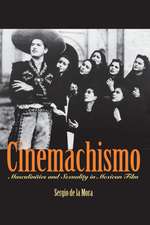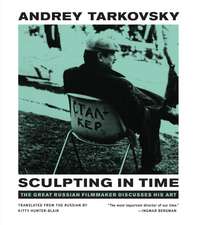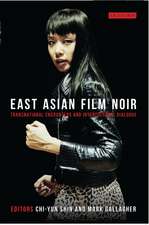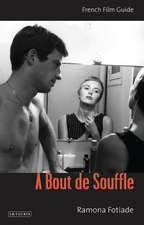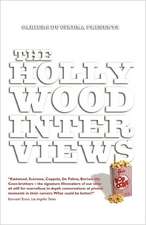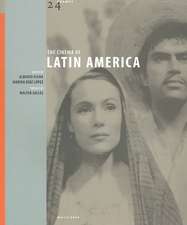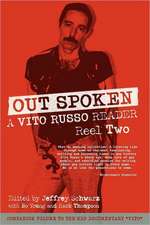Left of Hollywood: Cinema, Modernism, and the Emergence of U.S. Radical Film Culture
Autor Chris Robéen Limba Engleză Paperback – noi 2010
Preț: 240.80 lei
Nou
46.09€ • 49.75$ • 38.64£
Carte tipărită la comandă
Livrare economică 18 aprilie-02 mai
Specificații
ISBN-10: 029273753X
Pagini: 308
Ilustrații: 38 b&w Photographs
Dimensiuni: 152 x 229 x 23 mm
Greutate: 0.46 kg
Editura: University of Texas Press
Colecția University of Texas Press
Notă biografică
Cuprins
- Acknowledgments
- Introduction: Unfinished Promises to an Orphaned Time
- Chapter One: Montage, Realism, and the Male Gaze
- Chapter Two: Eisenstein in America: The ¡Que Viva México! Debates and Emergent Popular Front U.S. Film Theory and Criticism
- Chapter Three: Screening Race: The Antilynching Film, the Black Press, and U.S. Popular Front Film Criticism
- Chapter Four: Taking Hollywood Back: Gendered Histories of the Hollywood Costume Drama, the Biopic, and Jean Renoir's La Marseillaise
- Conclusion: Fragments of the Future
- Notes
- Bibliography
- Index
Descriere
In the 1930s as the capitalist system faltered, many in the United States turned to the political Left. Hollywood, so deeply embedded in capitalism, was not immune to this shift. Left of Hollywood offers the first book-length study of Depression-era Left film theory and criticism in the United States. Rob studies the development of this theory and criticism over the course of the 1930s, as artists and intellectuals formed alliances in order to establish an engaged political film movement that aspired toward a popular cinema of social change. Combining extensive archival research with careful close analysis of films, Rob explores the origins of this radical social formation of U.S. Left film culture. Grounding his arguments in the surrounding contexts and aesthetics of a few films in particular-Sergei Eisenstein's Que Viva Mexico!, Fritz Lang's Fury, William Dieterle's Juarez, and Jean Renoir's La Marseillaise-Rob focuses on how film theorists and critics sought to foster audiences who might push both film culture and larger social practices in more progressive directions. Turning at one point to anti-lynching films, Rob discusses how these movies united black and white film critics, forging an alliance of writers who championed not only critical spectatorship but also the public support of racial equality. Yet, despite a stated interest in forging more egalitarian social relations, gender bias was endemic in Left criticism of the era, and female-centered films were regularly discounted. Thus Rob provides an in-depth examination of this overlooked shortcoming of U.S. Left film criticism and theory.
